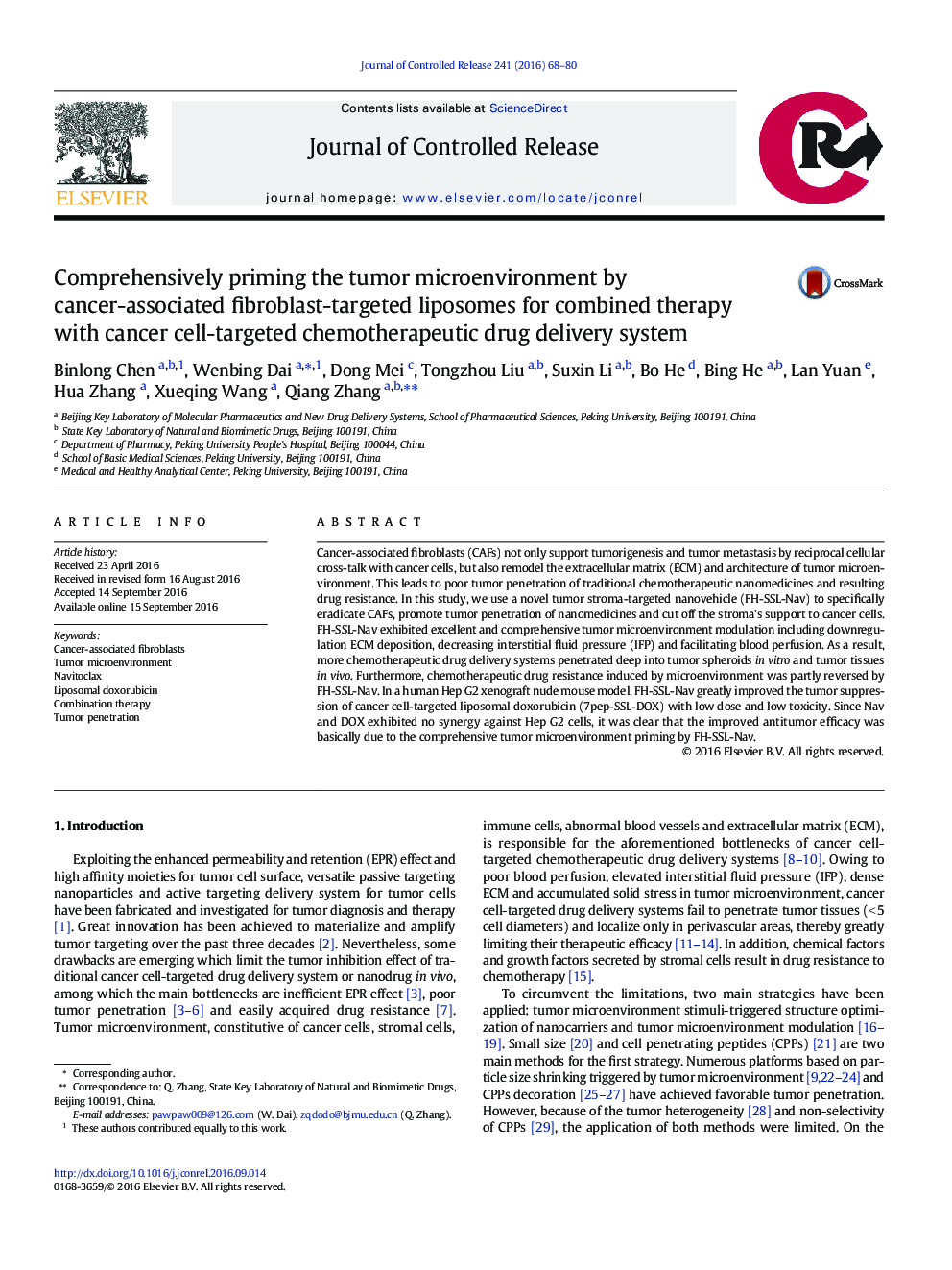| Article ID | Journal | Published Year | Pages | File Type |
|---|---|---|---|---|
| 5433901 | Journal of Controlled Release | 2016 | 13 Pages |
Cancer-associated fibroblasts (CAFs) not only support tumorigenesis and tumor metastasis by reciprocal cellular cross-talk with cancer cells, but also remodel the extracellular matrix (ECM) and architecture of tumor microenvironment. This leads to poor tumor penetration of traditional chemotherapeutic nanomedicines and resulting drug resistance. In this study, we use a novel tumor stroma-targeted nanovehicle (FH-SSL-Nav) to specifically eradicate CAFs, promote tumor penetration of nanomedicines and cut off the stroma's support to cancer cells. FH-SSL-Nav exhibited excellent and comprehensive tumor microenvironment modulation including downregulation ECM deposition, decreasing interstitial fluid pressure (IFP) and facilitating blood perfusion. As a result, more chemotherapeutic drug delivery systems penetrated deep into tumor spheroids in vitro and tumor tissues in vivo. Furthermore, chemotherapeutic drug resistance induced by microenvironment was partly reversed by FH-SSL-Nav. In a human Hep G2 xenograft nude mouse model, FH-SSL-Nav greatly improved the tumor suppression of cancer cell-targeted liposomal doxorubicin (7pep-SSL-DOX) with low dose and low toxicity. Since Nav and DOX exhibited no synergy against Hep G2 cells, it was clear that the improved antitumor efficacy was basically due to the comprehensive tumor microenvironment priming by FH-SSL-Nav.
Graphical abstractCAF-targeted liposomes eradicate CAFs to prime the tumor microenvironment and enhance tumor penetration of traditional cancer cell-targeted drug delivery systems, leading to an excellent combination tumor therapy.Download high-res image (479KB)Download full-size image
